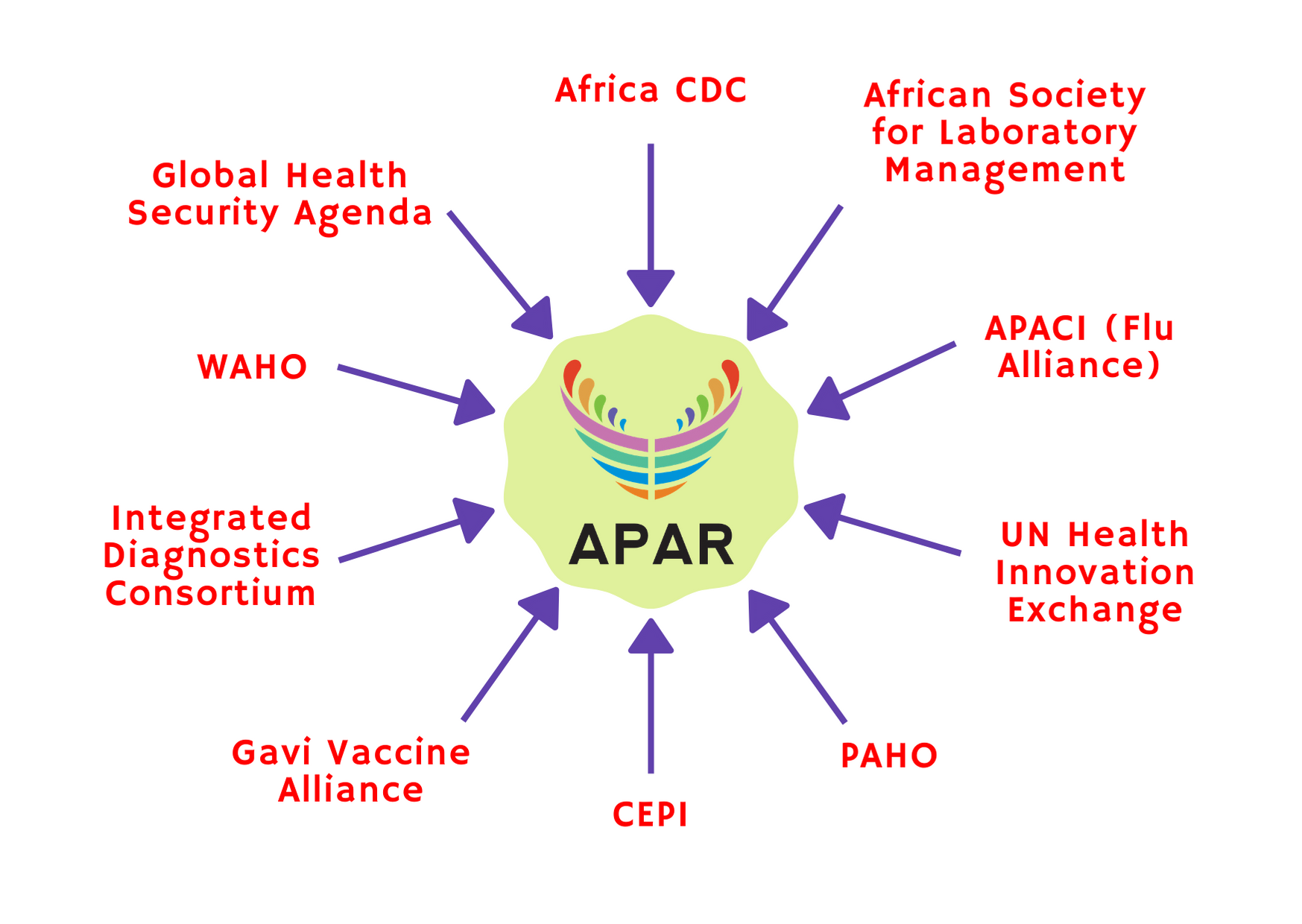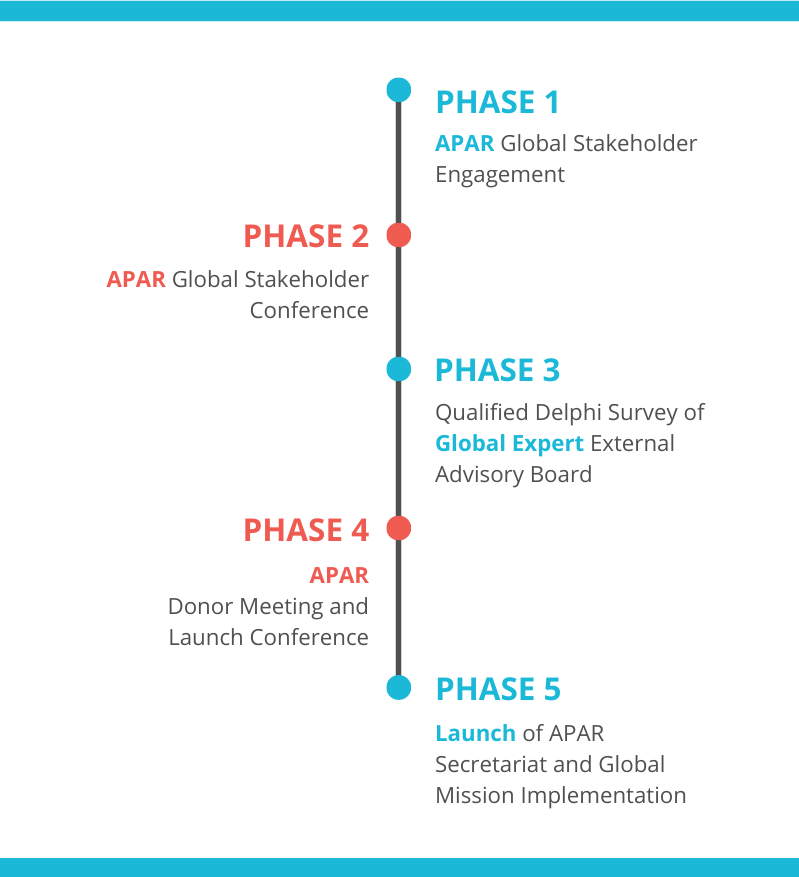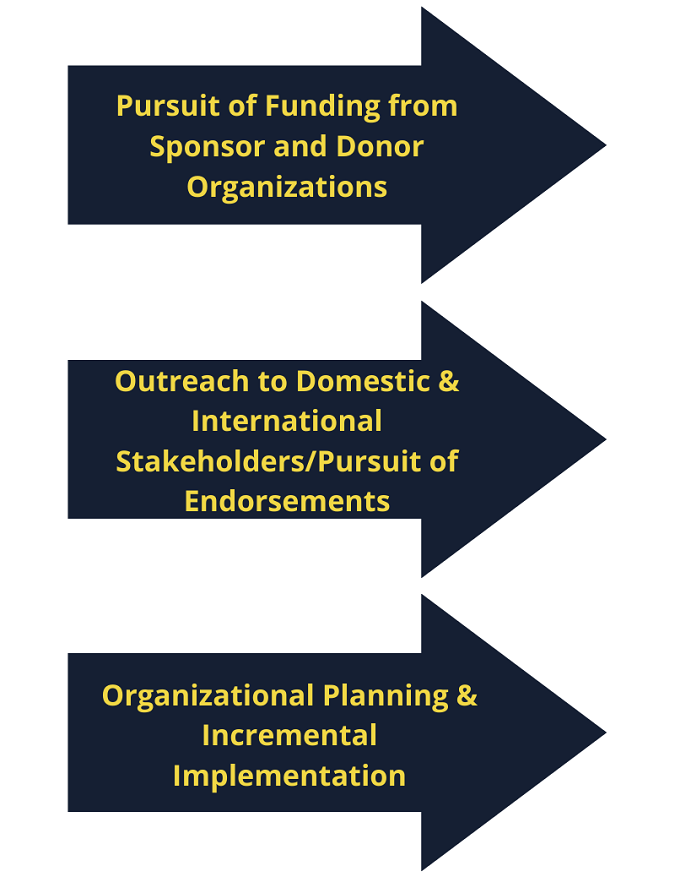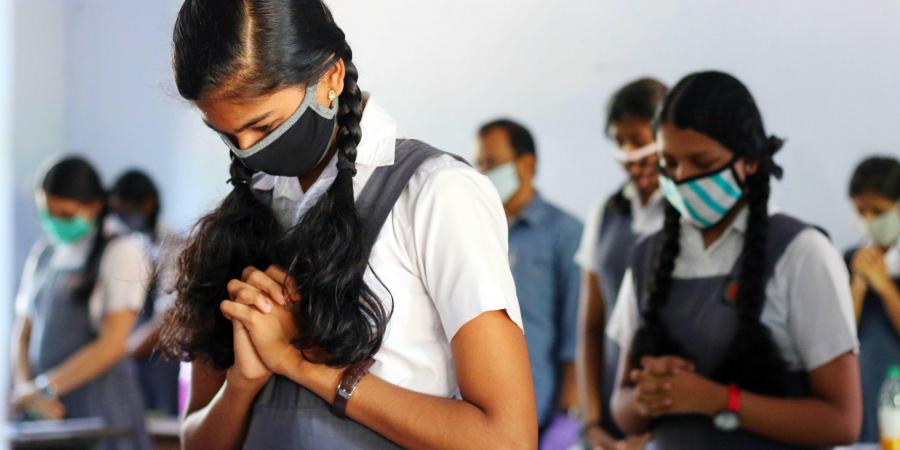Our Strategy
Alliance for Pandemic Preparedness and Response
Governance
Our Focus
Our Strategy
APAR will aim to act locally while maintaining a global perspective to create holistic ecosystems, building intersectoral and interdisciplinary bridges and linkages among institutions of varying backgrounds to enhance pan-regional health security capacities. APAR will coordinate and collaborate closely with existing global/regional stakeholders (incl. health organizations; nation state ministries, non-governmental partner organizations; medical; veterinary; agricultural and environmental associations; academia; research organizations as well as Industries) adhering to the highest standards of professional integrity, scientific and technical excellence, and global standards in research ethics. APAR will build on lessons learned from organizations that are advancing One Health Security laboratory capacities as well as vaccine and therapeutics innovation globally. Where possible APAR will create synergistic linkages and leverage competencies, services, strategies and operational frameworks, including mechanisms established by the World Health Organization (WHO) and the World Organization for Animal Health (OIE).
APAR is built on lessons learned
APAR is built on lessons learned from organizations that are advancing One Health Security laboratory capacity as well as vaccine and therapeutics innovation globally.
Where possible APAR will create synergistic linkages and leverage competencies, services, strategies, and operational frameworks.
APAR leverage mechanisms are established by the Global Health Security Agenda.

Implementation Strategy

Ongoing Activities

Health Security Academic Partnership and Education
Throughout the alliance member countries, ARAP will aim to establish an academic and educational partnership network. This network will drive knowledge exchange and education through
- Collaborative research.
- Postdoc and faculty exchange.
- Development of undergraduate and graduate coursework and degrees in the field of Health Security.
In addition, this network shall devise curricula aimed at advancing health security knowledge at the primary and secondary educational levels (school-aged children and young adults) and vocational education. Also to develop applied practical training curricula for workers in the veterinary and human health care field.





